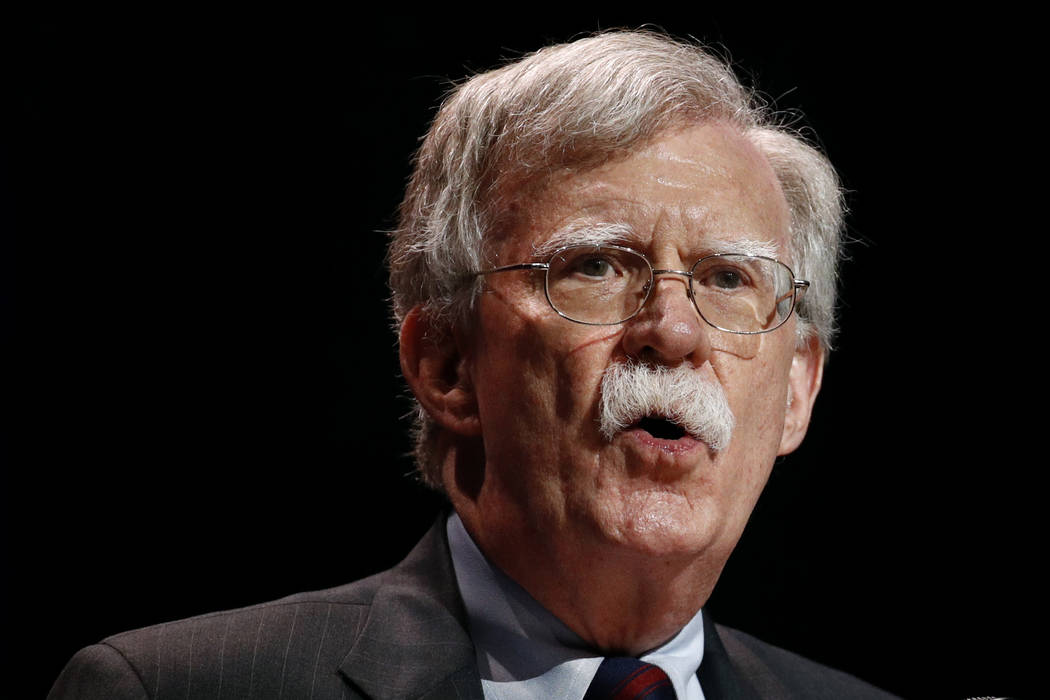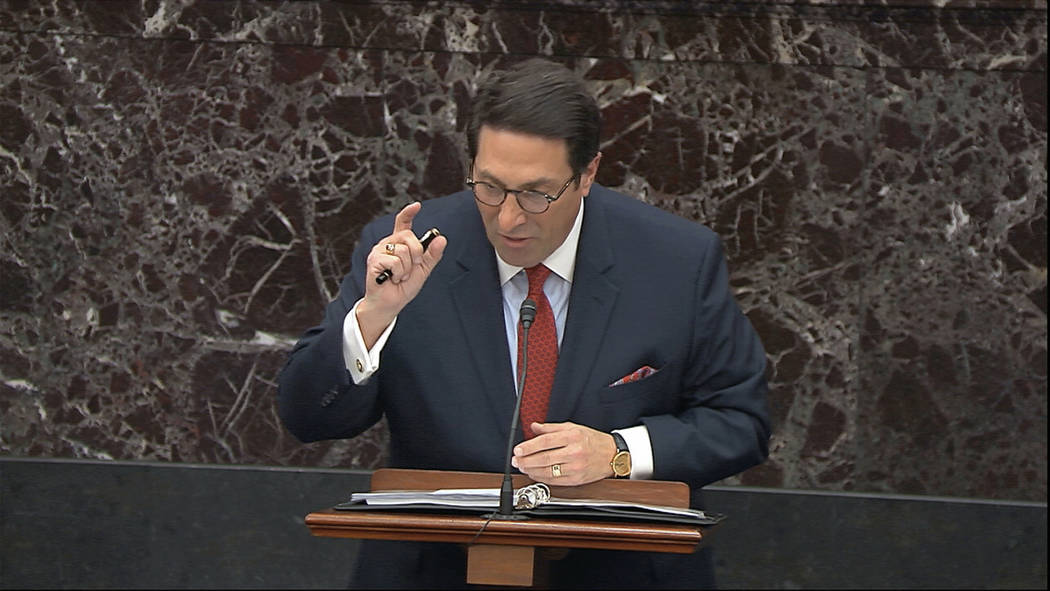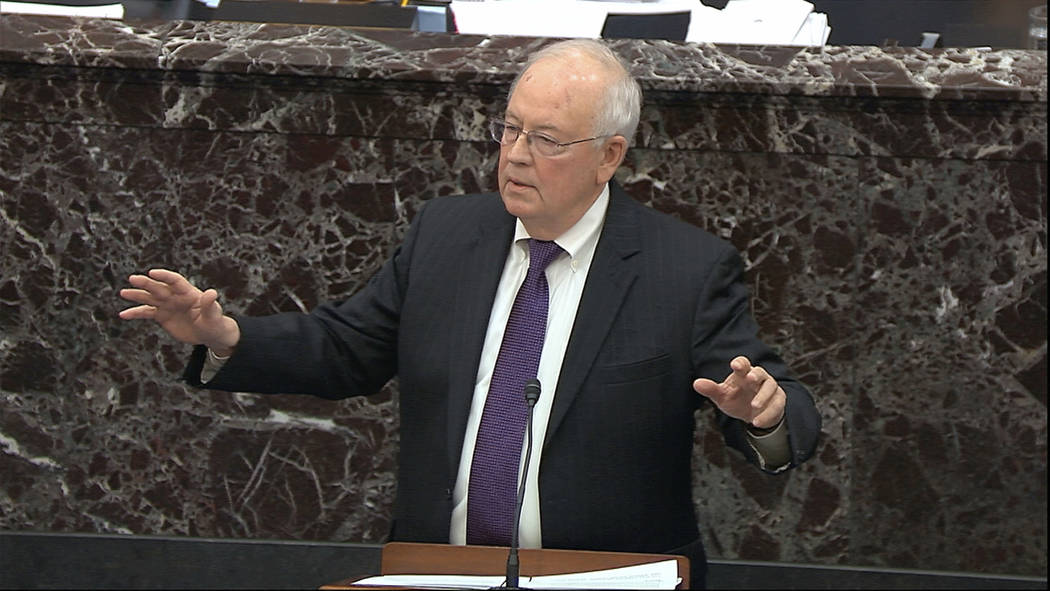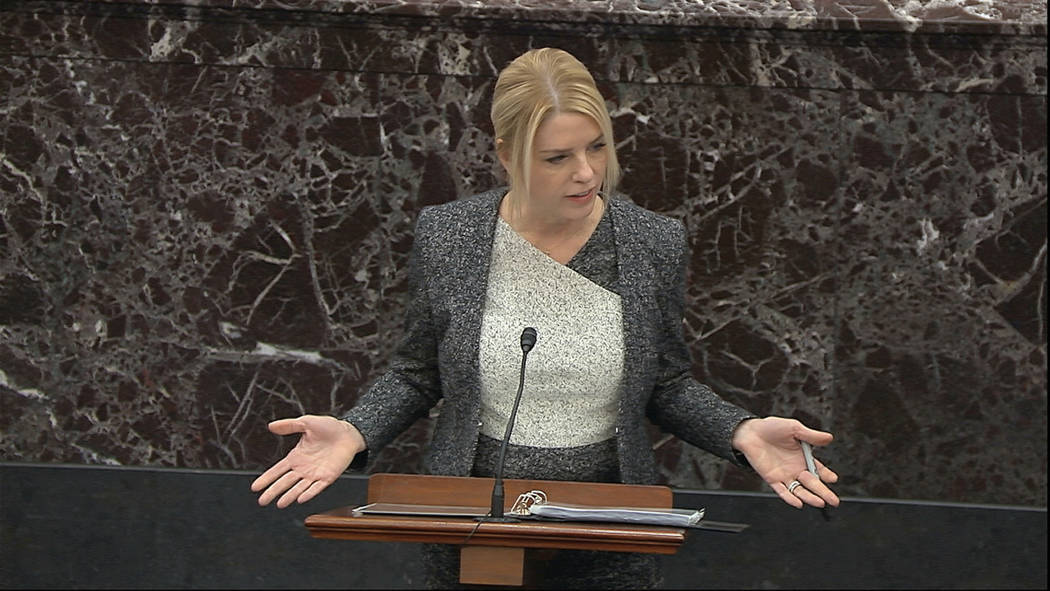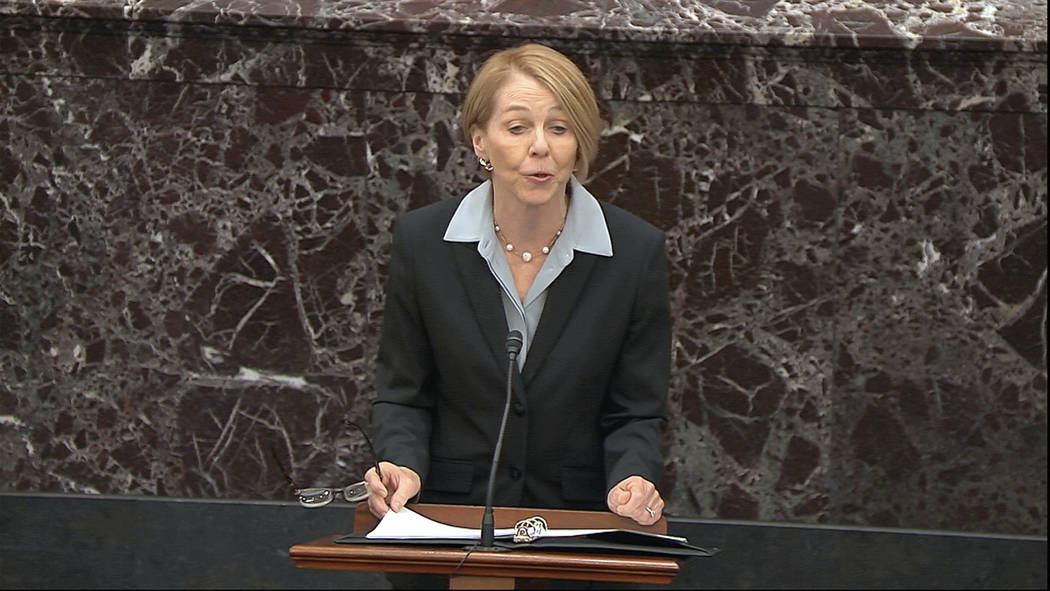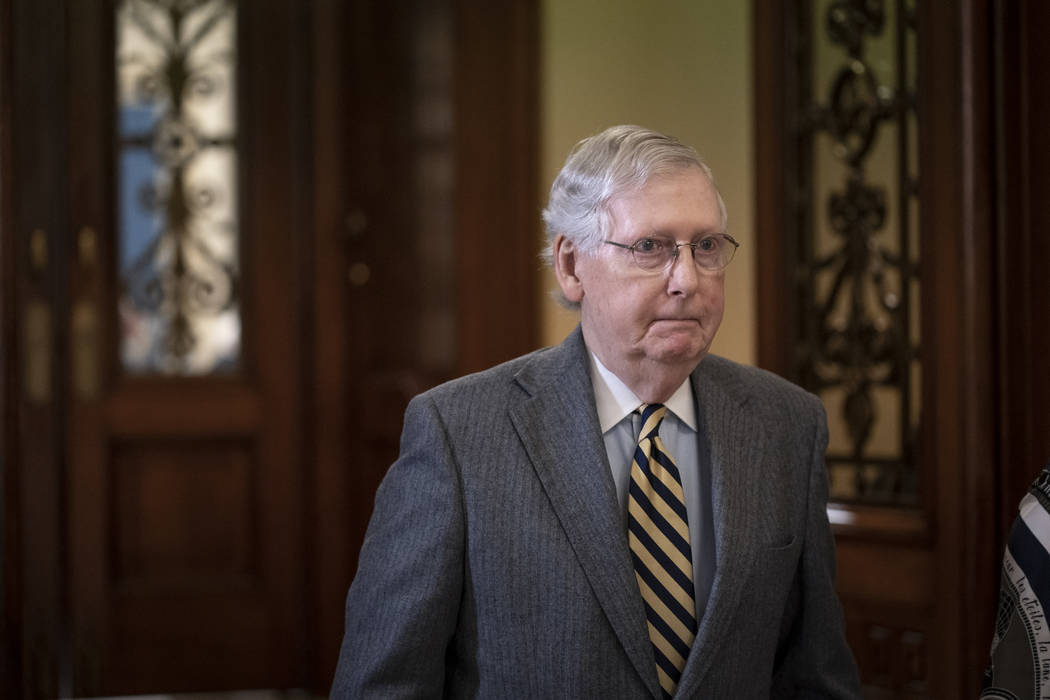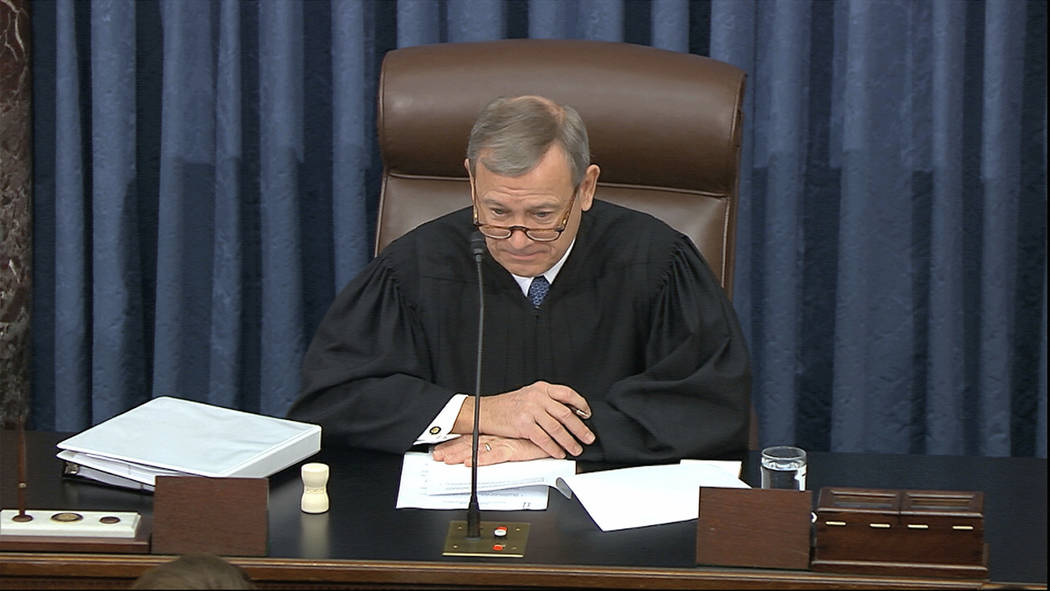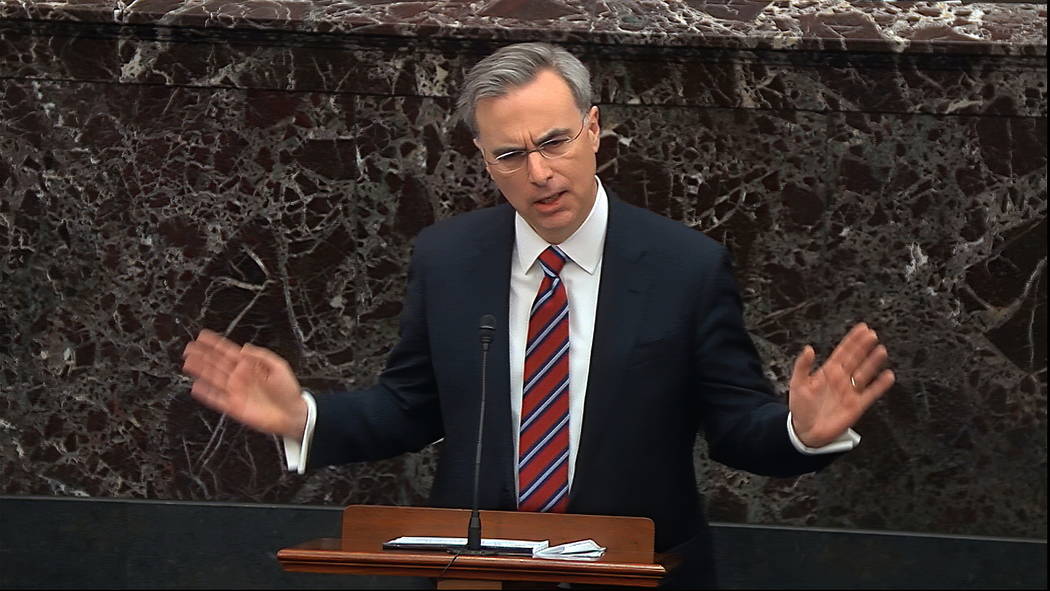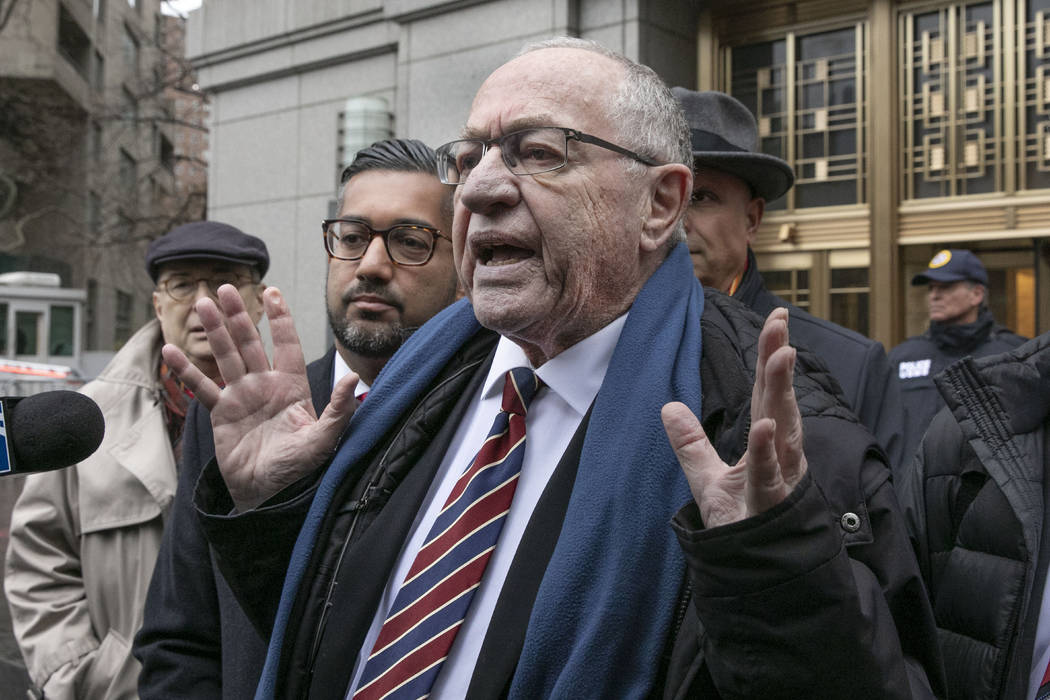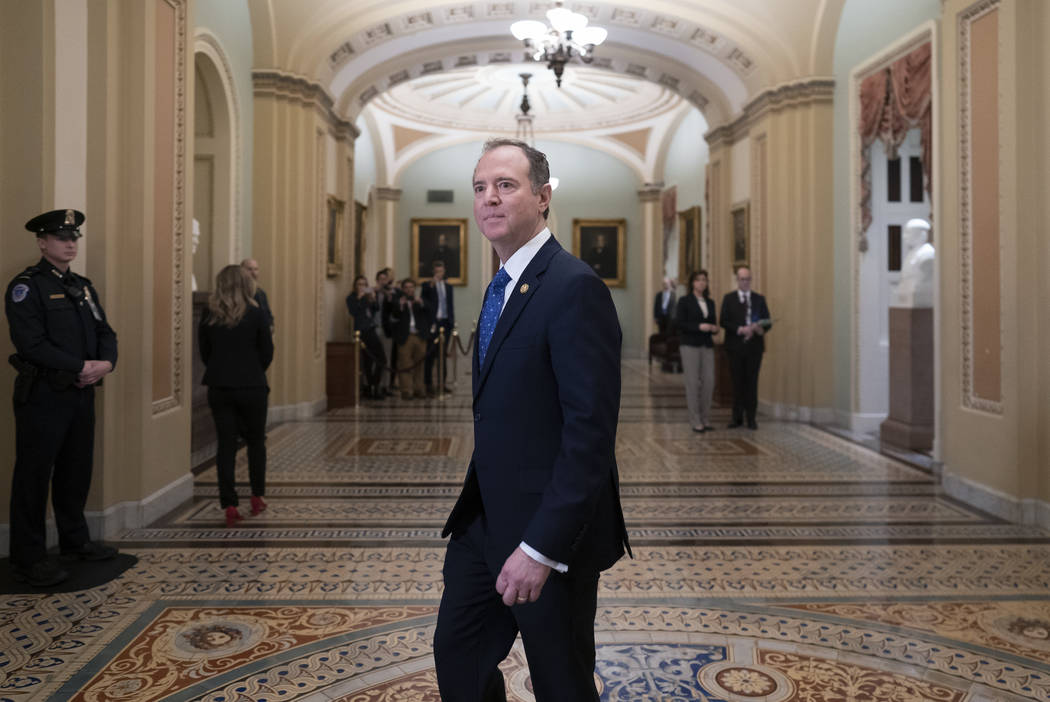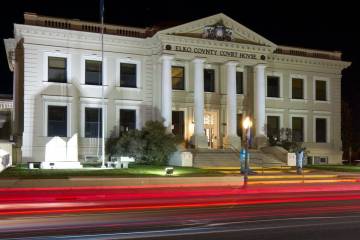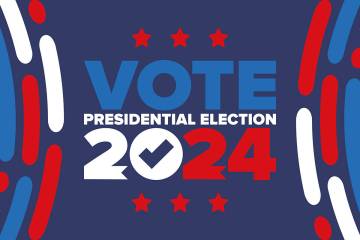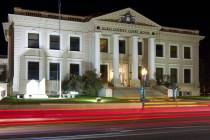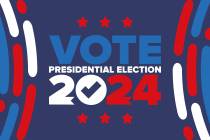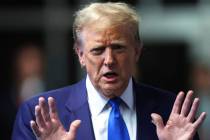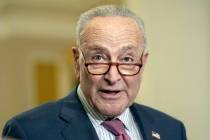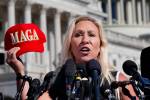President lawyers dismiss Bolton allegations
WASHINGTON — President Donald Trump’s legal team Monday dismissed allegations from former national security adviser John Bolton that military aid for Ukraine was withheld to secure an investigation of a political rival.
Democrats quickly seized on the information in a Bolton book manuscript about a quid pro quo and an investigation Trump sought from Ukraine as new information that should compel the Senate to vote later this week to call the former national security adviser as a witness.
Constitutional law professor Alan Dershowitz told the Senate that it would take a crime to impeach a president, and argued that nothing in the House case constitutes criminality that would allow the legislative branch to remove the president.
“Nothing in the Bolton revelation, even if true, would rise to an abuse of power or an impeachable offense,” Dershowitz said. “That is clear from history. That is clear from the language in the Constitution.”
Republican allies in the Senate, and Trump lawyers, also sought to dismiss the Bolton bombshell, which threatened to upend the Senate impeachment trial by prompting some moderate GOP lawmakers to consider calling the former security adviser as a witness.
“We deal with transcript evidence, we deal with publicly available information. We do not deal with speculation, allegations that are not based on evidentiary standards,” Jay Sekulow, the president’s private lawyer, told the Senate.
President Trump took on the book’s claims directly: “I NEVER told John Bolton that the aid to Ukraine was tied to investigations into Democrats, including the Bidens. In fact, he never complained about this at the time of his very public termination. If John Bolton said this, it was only to sell a book,” Trump said on Twitter Sunday.
Arguing the process
The defense team used its well-known lawyers like Ken Starr, the former independent counsel in the impeachment case against President Bill Clinton, to make legal and historical arguments for Senate acquittal.
Starr claimed that the House impeachment case against the president was “dripping with fundamental process violations,” that even President Andrew Johnson, acquitted in 1868, did not face in his impeachment trial conducted just after the Civil War.
President Richard Nixon, Starr noted, resigned before impeachment reached the Senate, but after the House voted with a bipartisan majority for an impeachment inquiry.
Starr said there were criminal charges in impeachment inquiries into Nixon, and in the case of Clinton, which was launched after Starr’s independent counsel investigation veered from an Arkansas land deal known as Whitewater to a tryst with White House intern Monica Lewinsky.
Since then, Starr said, the nation has been thrust into the “age of impeachment.”
Starr urged senators to turn the country back to the tradition where presidential impeachment is only used as “a measure of last resort.”
No wrongdoing by president
Trump’s lawyers continued their defense argument that the president committed no wrongdoing.
Trump’s lawyers said the president was concerned about corruption when he asked Ukrainian President Volodymyr Zelenskiy for an investigation into rival Joe Biden and his son, Hunter Biden, who was on the board of Ukrainian gas company Burisma when his father served as vice president.
As the request was made, Trump directed $400 million in military aid for Ukraine to be withheld.
Sekulow noted that Zelenskiy and Ukrainian officials said there was no pressure placed on them by Trump.
But in his upcoming book, Bolton claims Trump withheld the aid to force the Ukrainians to announce the investigation into the Biden’s, which would boost his electoral chances against a top rival for the White House.
“Why did this leak out, at this time,” Rep. Mark Meadows, R-N.C., told reporters. Meadows is one of several Republican House lawmakers and Trump backers monitoring the trial in the Senate.
House Democrats said regardless of the leak, the information should force GOP senators to make a calculated decision when voting on witnesses.
“There can be no doubt now that Mr. Bolton directly contradicts the heart of the president’s defense and therefore must be called as a witness at the impeachment trial of President Trump,” House impeachment managers said in a statement.
Bolton, who did not cooperate in the House impeachment inquiry, has said he would testify before the Senate under subpoena. Senate Democrats want his testimony, and a vote is expected later this week to determine whether witnesses will be allowed in the trial.
Firsthand witnesses sought
Senate Minority Leader Chuck Schumer, D-N.Y., said the president’s lawyers argument that no witnesses in the House impeachment inquiry had heard from Trump directly about the investigations and the military aid helped the Democrat’s case to call witnesses.
In addition to Bolton, the acting White House chief of staff, Mick Mulvaney, told reporters there was a quid pro quo in the investigation request. Mulvaney later tried to take back that remark.
“Once again the president’s lawyers keep making the case for witnesses,” Schumer told reporters. “We want Bolton; we want Mulvaney.”
Schumer said the trial, so far, has been “a little like Watergate. Every week something new comes out.”
Republicans hold a slim 53-47 majority in the Senate and would need four GOP senators to join them to have the simple majority needed to call witnesses. The Bolton revelations may have moved some GOP lawmakers to consider a vote for additional testimony and documents.
Sen. Susan Collins, R-Maine, and Sen. Mitt Romney, R-Utah, told reporters Monday that they were interested in what Bolton had to say about the July 25 telephone call between Trump and Zelenskiy, which is at the center of the impeachment trial.
And Sen. Angus King, a Maine independent who caucuses with Democrats, told National Public Radio that between five and 10 Republican lawmakers could vote to hear Bolton and other witnesses following the most recent disclosure about the Ukrainian aid in the book manuscript.
But Sen. John Barrasso, R-Wyo., the chairman of the Senate Republican Conference, said the information in the Bolton book manuscript “doesn’t go beyond what we haven’t already heard” from 17 witnesses called by the House.
“There is no new information,” Barrasso said.
Election looming
With voting in Iowa starting next week, Barrasso said it should be up to the electorate, not the Senate, whether to overturn the 2016 presidential election and remove Trump from the 2020 ballot through conviction.
“Let the voters make that decision,” Barrasso said.
Meanwhile, Trump defense lawyers also focused on the Bidens, particularly Hunter Biden, who they claimed had no experience in the gas and energy field when he was hired by a Ukrainian firm while his father was vice president.
Republican allies of the president, like Sen. Ted Cruz, R-Texas, said they would demand reciprocal witnesses if Bolton is called to testify.
The most important witness now “is Hunter Biden,” Cruz told reporters.
Once the president’s legal team finishes its case, the schedule calls for 16 hours, divided equally, for senators in each party to ask questions of the House impeachment managers and the Trump team. Those questions will be vetted by Chief Justice John Roberts.
The Senate would then debate the case and, potentially, hold a vote on witnesses. But in order to remove the president, the Constitution requires 67 votes, which means 20 Republicans would have to join 45 Democrats and two independents.
Contact Gary Martin at gmartin@reviewjournal.com or 202-662-7390. Follow @garymartindc on Twitter.
RELATED
New details prompt Dems to demand Bolton testify at Trump's trial



